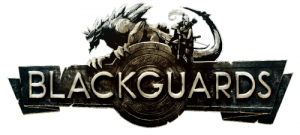Entertainment
Like Difficult Games? This Blackguards Preview will make you second guess yourself
Josh Smith

There’s a strange community within the gaming world that wants their games to be as difficult and unyielding as possible. It’s that community that has made titles like Super Meat Boy, Dark Souls, and the rage-inducing Trials franchise massive successes. I can only assume that developer Daedalic Entertainment has seen the success of those games when they decided to create Blackguards for PC.
Some players were granted early access to the game in November 2013, myself being one of them. The game has been updated since then, modifying the difficulty to allow a wider audience to enjoy it, but a large spike still remains that will frustrate most.
The story begins as the main character, you, is falsely accused of murdering the Princess. In a magnificent turn of stereotypical narrative, you’re also a victim of amnesia, making it difficult to prove your innocence. As you escape your own hanging, you begin a quest to clear your name. Nothing particularly unique in terms of story variation, but as with any RPG, you’re not stuck in that one quest line throughout.

Early on you’ll gain party members, each with their own unique abilities that flourish at different moments of a battle. The battles are essentially at each point of the map that you move to, as there is no real “character movement” outside of combat situations. To dumb it down, imagine a board game — that’s the world map. Your party moves from point-to-point, with combat initiated at each of them, unless you’re visiting a town. As you enter towns or complete quest objectives, additional points will be discovered or paths will become available to other towns and villages.
The turn-based combat compliments the hexagonal grid system that each encounter brings. The combat is perhaps one of the easiest to learn, but as you get deeper and deeper it will get more and more frustrating. The update that addressed difficulty was just the beginning, but to appeal to to masses — if that is indeed their goal — more needs to be done.

Players familiar with tabletop games will understand the system the easiest, with action points being used on each character’s turn — which makes sense, considering this was derived from a tabletop game. Players and NPCs are able to forego an attack on their turn in order to do a “double-move,” closing the distance between your foe quickly. Having a character with ranged combat or skilled in magic is invaluable in these situations because, while there is a maximum distance for ranged attacks, characters are essentially gaining an extra attack if they’re able to stay at range. That’s important because, in perhaps the most frustrating part of the game, your attacks miss far too frequently. Arrows are dodged, spells fizzle out, and sword swipes simply miss. Early on, even with one or two special skills in your repertoire, you’ll find yourself using the more basic attacks, as they have the greatest percentage to hit the enemy.

Special skills are important, as they’re exponentially more useful than your simple attack, but the risk of missing is also far higher. As combat initiates you may even be met with combat-requisites, like being required to reach a character within five turns otherwise the NPC you’re trying to save will be murdered. It’s those scenarios where the combat flaws shine through. When rushing to complete a battle you’ll often find that the tactics that work — moving slow and steady, for instance — aren’t able to be used, otherwise you fail an objective. Because of that, you’ll fall into a “quick save-quick reload” game that forces you to redo an encounter over and over again.
The generic storyline and stereotypical characters are easily overlooked because the character development system is surprisingly deep, allowing for customization rivaled by few RPGs. The difficulty pendulum helps cause some unneeded frustration though, overall. Having easily dispatched foe after foe across five or six encounters, you’ll suddenly be met with a battle that flips your normal tactics on its head. And while this is a great way to prevent repetitive combat and tedious action, the fact that you have to implement an entirely new set of tactics on the fly with no gradual difficulty increase may force you out of Blackguards and into the welcoming arms of an easier, more well-paced title.
Overall Score: 6.5 out of 10
Note: This review was done on the Blackguards early-access beta build that featured the first four chapters of the game. More updates may be available after the game’s release on January 24, 2014.
















